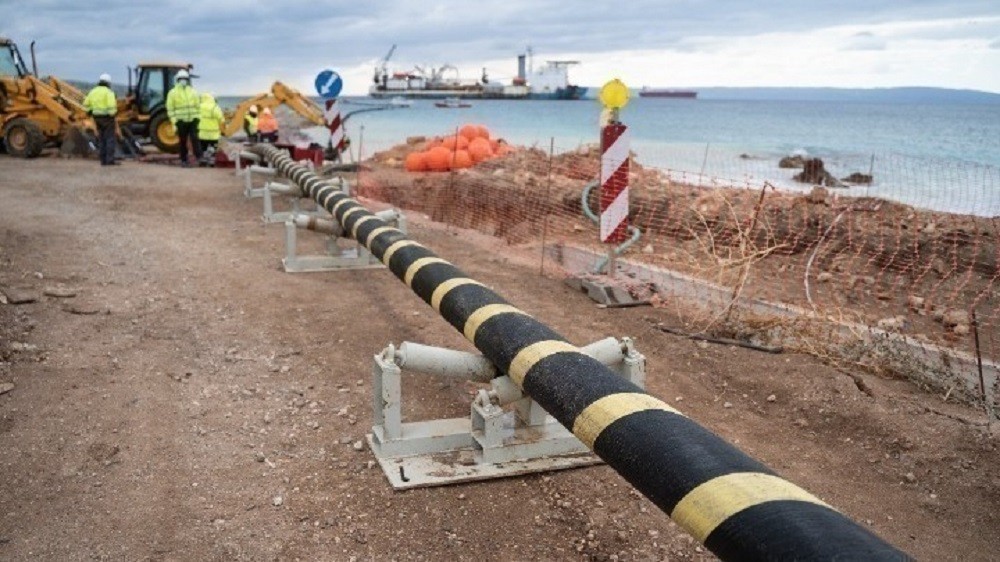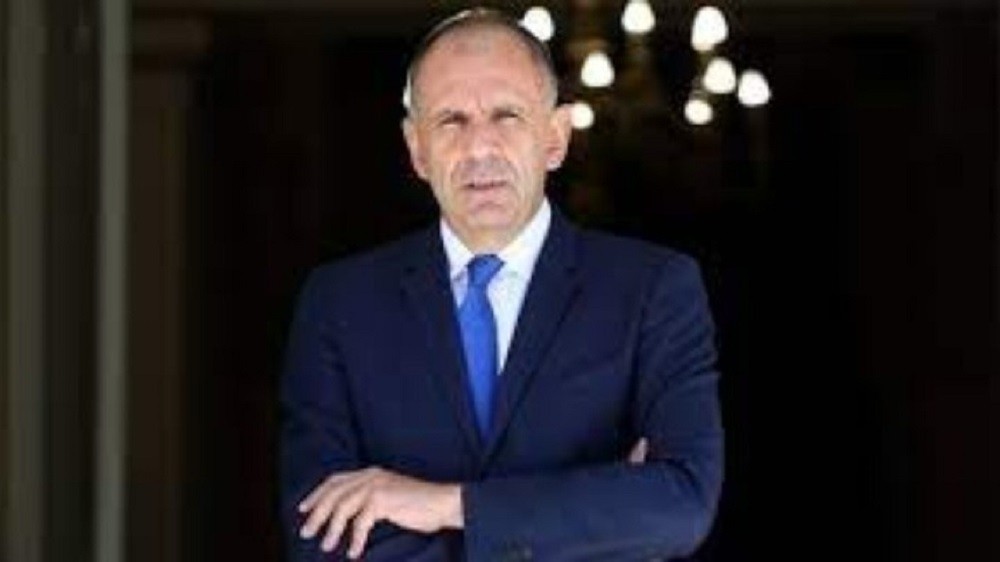
Cyprus faces organised robbery as EU leaders seek economic and political control
By George Venizelos
The Eurogroup’s decision to proceed to a haircut on Cypriot savings accounts has caused mass discontent amongst the people of Cyprus and beyond. The decision of 15th March left the Cypriots shocked, angry, betrayed and swindled, after seeing their own savings sacrificed to save the banking sector. Over the past two weeks, Cyprus has faced a direct attack from the economic institutions of the European Union; on the one hand, the arrogant demand to force the people to pay for the financial crisis and on the other, the blackmail of ‘bailout or collapse’.
Opinion within Cypriot society
Opinion amongst the public differs, but the ordinary Cypriot people, the small savers, agreed that the decision was too much. The left – which until recently governed the island – blames the new conservative government, saying that they are leading Cyprus to bankruptcy through neo-liberalism, privatisation and EU policies which will bring a new type of slavery/colonisation to the island. But the politicians of the right and their supporters say that it hasn’t happened in their two weeks of government but during the past five years when AKEL governed the island.
Well, the truth hides somewhere in the middle, although many will disagree with this opinion. Indeed, the previous government of the mainstream left wanted to protect ordinary people from the tactics and the suggestions of the troika which would attack directly the lower layers of the society. Therefore they opposed in many ways the demands and suggestions of the EU which wanted to prevent a possible crisis in the near future in Cyprus. The government of AKEL appeared to resist but, in my opinion, did so only rhetorically. Indeed, it did not proceed to any unpopular measures but also did not proceed to any radical and drastic measures to protect the economy without making the poor pay. It took loans from Russia but the money was used to pay public sector strikers to return to their jobs and to help the country recover from the explosion at the naval base in the summer of 2011 which damaged the island’s main power station. Moreover, at the end of its term, the government itself invited the troika to the island to discuss possible pans for monetary aid.
Indeed, the crisis of the banking sector did not happen either in one night or in the two weeks of conservative government. However, it is true that AKEL was obviously a problematic negotiator with the troika since it did not want to follow their plans and so the leading powers of the EU waited patiently for the elections of last February. The EPP conference even took place in Nicosia, patronising the upcoming elections and spreading a message of friendship and future help if Anastasiades, the current conservative president, won the elections. This, interwoven with criticism of AKEL’s five years in office, led to the election of Anastasiades who was just what the European partners wanted as a negotiator.
The dilemma
Nevertheless, what has happened in the past ten days has left Cypriots in a state of uncertainty. A direct withdrawal of the people’s savings was, firstly, the worst economic decision and, secondly, a declaration of war between the strong and the weak of the eurozone. On that night, the Cypriot government faced the dilemma presented by the EU, bailout or collapse. In this respect, as the new president stated, ‘we chose the least bad option’ – the bailout. However, when the proposal was taken to the Cypriot parliament, it was rejected by every party apart from DISY (the party of government) which decided to abstain from the process.
Almost every left wing party and organisation, together with the ordinary people of Europe, saluted the decision, including economists from around the world who were shocked by the proposal of the European partners regarding Cyprus. On the contrary, the leading EU countries most opposed to the Cypriot decision led the discussions the following week to exclude any alternative and any proposal from the Cypriot government, patronising the decision of the government and ultimately coercing it to accept the initial proposal a week later. The only difference at that point was the pressure of time and the fact that the Cypriot economy was about to collapse at any minute. For sure, a solution had to be found, but a bailout can only be described as a catastrophe. The confidence of the people was lost; the Cypriot market froze, ordinary citizens and business people alike withdrew massive amounts of capital and sent it to other countries to protect themselves. Then the local market started shaking and sinking dramatically. In other words, the decisions taken in the past weeks paved the way for a massive capital withdrawal from the island, especially by Russian investors who kept massive amounts of money and investments in Cyprus.
The scenarios
Opinion within the country suggests that the EU’s unfriendly stance – and more specifically that of Germany – aimed to achieve three things: a) Control of Cypriot natural gas which is due to be produced around 2017 b) An attack on Russian dirty money and ultimately its control c) A solution to the Cypriot political problem, unsolved since 1974
The EU has been aware of money laundering in Cyprus since 2007, but no action was taken until just after the announcements of the start of gas drilling this year (Phileleftheros newspaper, March 2013). Cyprus cannot manage the drilling by itself and cannot maintain its economy on its own since it is based only on services, tourism and foreign investment. In this respect, the EU does not seem to like the path which Cyprus has chosen, that is, using resources outside the EU, with partners, such as the Russians, who do not get along with the hegemons of the EU, such as Germany. What we experience these days is the greediness of the leading countries within the EU, and particularly Germany, for economic and political control over the weaker countries of the south. By attacking the Cypriot economy in that way, the dominant EU powers would eventually be able to control the resources of the country, by exchanging money for natural gas and other political and economic rights for the price of bread.
The reaction: the people and the movement
During the past five years and the previous presidency, when for example cuts were introduced, and the troika was invited to the island, the people scarcely came out onto the streets. When austerity was lurking, unlike Portugal, Spain and Greece, nothing happened in Cyprus in terms of mobilisation. However, when the first and more direct effect of austerity was at the gates, people went on protests and demonstrations outside parliament and the presidential palace. Sometimes, even twice a day, people gathered to oppose the decision imposed by the EU. Thousands of banking sector workers protested under threat of losing their jobs, thousands of students mobilised and led another demonstration of thousands across the capital. Every assembly of the parliament was accompanied by the voice of thousands outside the House trying to enter and clashing with the riot police. Demonstrations and protests followed in other cities, exposing the general discontent of the people towards the decision and the politics of austerity that will follow.
I personally felt disappointed by fellow Cypriots for being ignorant, reluctant, apolitical and unaware of the socio-political and economical conditions in general. However, in the back of my head I trust the hot-blooded Cypriot rationale. The thin line between Europe and Middle East is drawn through Cyprus and when something is not accepted by its people, harsh consequences will follow. After the latest economic experience, every Cypriot realised the nature of the EU. The hegemonic nature of the EU and particularly Germany is now more visible than ever. The plans of the strong countries of the union for economic and political control are more obvious than ever. The route of resistance is not an easy one but from now on, the streets of Nicosia should be turned into battle fronts between oppressor and oppressed. It is more than clear that the economic downfall of Cyprus was planned and controlled for the reasons explained above. We need to continue building the consciousness of the people and oppose the neoliberal plans of the EU. Any path will be difficult but the people of Cyprus have already stated that it is better to be poor than to be slaves. The take it or leave it option given to the Cypriot government was an indirect blackmail to a weak Cyprus that is unable to measure and understand the level of the political game of the leading EU powers. We must examine other solutions and should be prepared to leave the eurozone of the opportunist partners at any time. To ‘save’ Cyprus in the way proposed by the troika is to maintain the current system. Yes, if we follow their tactics, we will eventually recover. But at what social and political cost? Capitalism has its booms and busts. After each boom there is a bust and vice versa. The point is not to remain part of this vicious circle and ultimately enter another, more serious, recession 30 years from now.
@GeorgeVenizelos – Photo: Phileftheros

